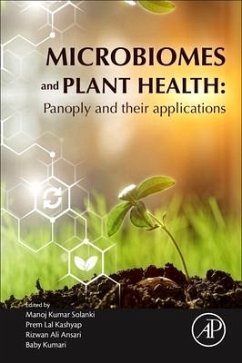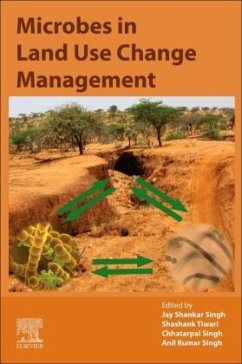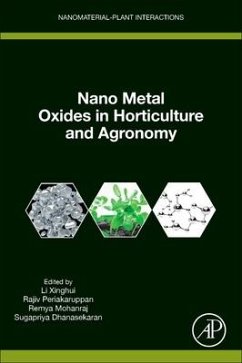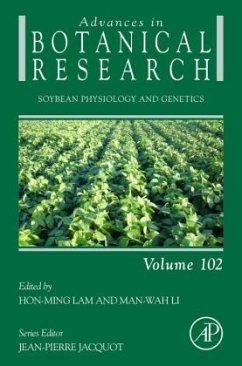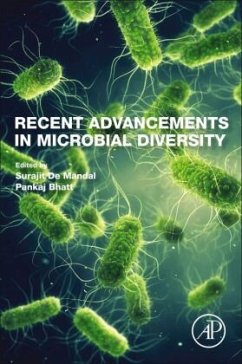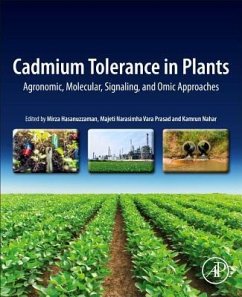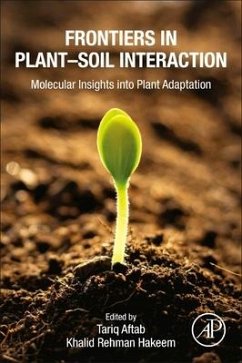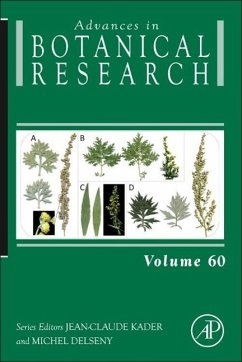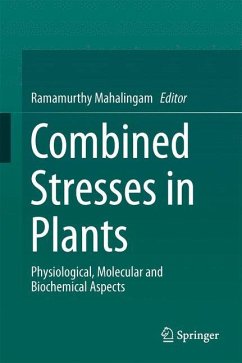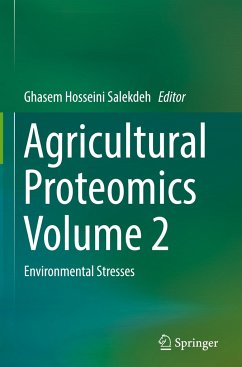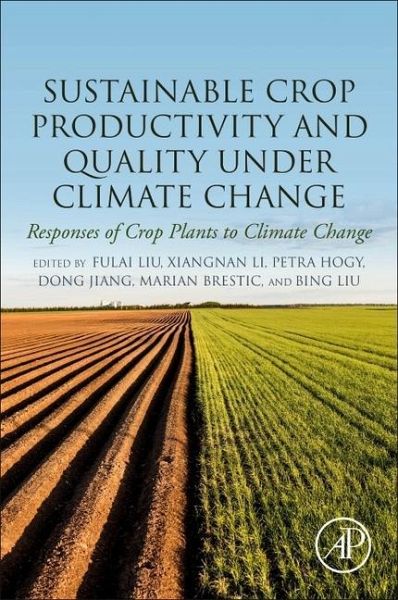
Sustainable Crop Productivity and Quality Under Climate Change
Responses of Crop Plants to Climate Change
Herausgegeben: Liu, Fulai; Li, Xiangnan; Hogy, Petra; Jiang, Dong; Brestic, Marian; Liu, Bing

PAYBACK Punkte
65 °P sammeln!
Sustainable Crop Productivity and Quality under Climate Change: Responses of Crop Plants to Climate Change explores the physiological, biochemical, and molecular basis of the responses of major crop plants to a range of climate change scenarios. From the development of climate-resilient crop varieties which lead to enhanced crop productivity and quality to better utilization of natural resources to ensure food security through modern breeding techniques, it presents insights into improving yield while securing the environment.Understanding the impact of climate on crop quality and production i...
Sustainable Crop Productivity and Quality under Climate Change: Responses of Crop Plants to Climate Change explores the physiological, biochemical, and molecular basis of the responses of major crop plants to a range of climate change scenarios. From the development of climate-resilient crop varieties which lead to enhanced crop productivity and quality to better utilization of natural resources to ensure food security through modern breeding techniques, it presents insights into improving yield while securing the environment.
Understanding the impact of climate on crop quality and production is a key challenge of crop science. Predicted increases in climate variability necessitate crop varieties with intrinsic resilience to cooccurring abiotic stresses such as heat, drought, and flooding in a future climate of elevated CO2. This book presents a much-needed mechanistic understanding of the interactions between multiple stress responses of plants that is required to identify and take advantage of acclimation traits in major crop species as a prerequisite for securing robust yield and good quality.
This book is an excellent reference for crop and agricultural scientists, plant scientists, and researchers working on crop plant ecophysiology/stress physiology and future crop production.
Understanding the impact of climate on crop quality and production is a key challenge of crop science. Predicted increases in climate variability necessitate crop varieties with intrinsic resilience to cooccurring abiotic stresses such as heat, drought, and flooding in a future climate of elevated CO2. This book presents a much-needed mechanistic understanding of the interactions between multiple stress responses of plants that is required to identify and take advantage of acclimation traits in major crop species as a prerequisite for securing robust yield and good quality.
This book is an excellent reference for crop and agricultural scientists, plant scientists, and researchers working on crop plant ecophysiology/stress physiology and future crop production.




